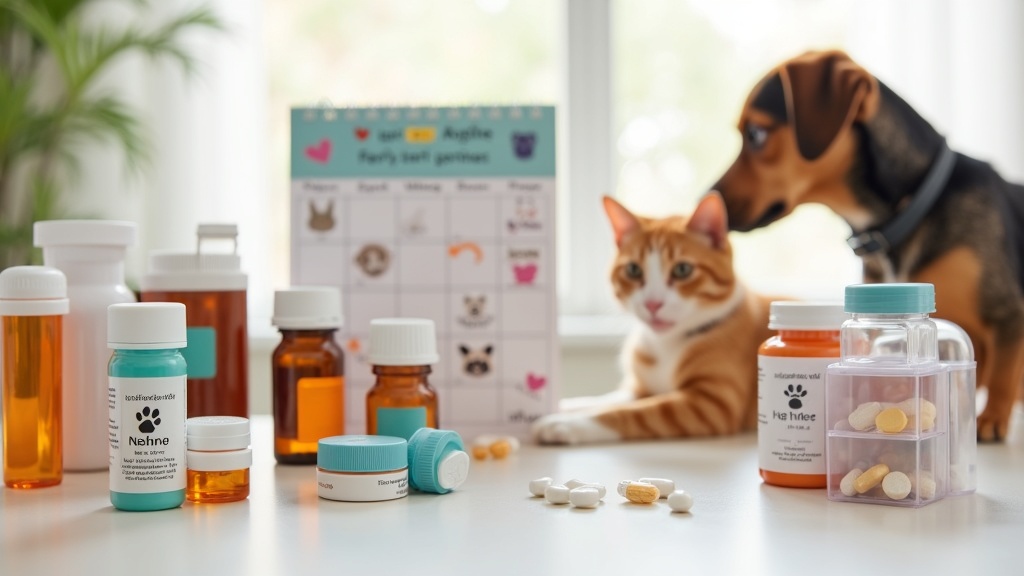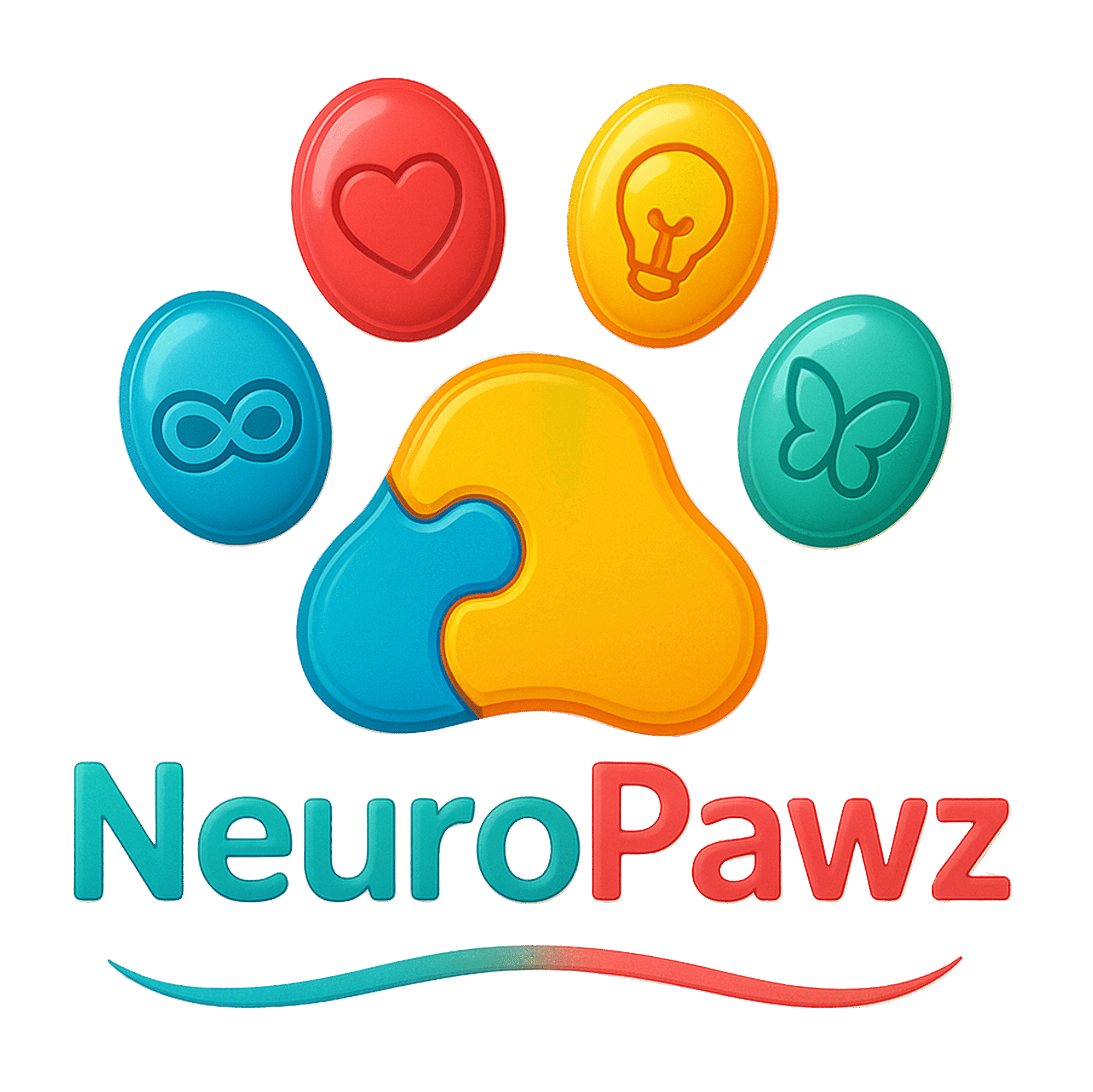Managing pet medicine routines and health schedules can turn into a juggling act, especially for folks who are neurodivergent, have multiple pets, or just have a lot going on. With the wide range of meds, supplements, and preventive treatments out there, it’s easy for things to slip through the cracks. I’ve stumbled upon some tools, habits, and mindset switches that make pet care feel way less overwhelming and a whole lot friendlier for ADHD/Autistic brains too.

Why Organized Pet Health Schedules Matter
Coordinating your pet’s medication and health schedule isn’t just about ticking off tasks. Staying on top of this helps you avoid accidental missed doses, cuts the risk of medical emergencies, and takes the edge off my anxiety about pet health. Consistent routines help neurodivergent people, like me, keep overwhelm in check by replacing chaos with structure. That structure can feel incredibly grounding on tough days.
The World Small Animal Veterinary Association puts a spotlight on the importance of medication adherence for preventing relapses and reducing complications. I also noticed in my own life that when I set up reminders and tracked my pets’ meds, I wasn’t left second-guessing myself: “Did I already give the flea pill or not?” If forgetfulness or executive dysfunction are struggles for you, a reliable routine acts like a safety net to catch those mishaps before they happen.
Understanding Your Pet’s Meds, Treatments, and Needs
Each pet usually has unique medical requirements, and it’s not always all about daily medications. There can be:
- Longterm meds: for chronic illnesses like epilepsy, diabetes, or thyroid issues
- Routine preventatives: flea, tick, and heartworm meds, usually monthly
- Supplements: things like probiotics or joint supplements
- Vaccinations and vet checkups: annual or semiannual
- Shortterm meds: antibiotics or pain medication after surgery or injury
I find it really helpful to have a “cheat sheet” that lists what each pet needs and when. If you’re autistic and thrive on visual reminders or your ADHD brain loves sticky notes and color coding, this is a game changer. Your vet’s office will typically give a calendar after checkups, so don’t be shy to ask for dates or written instructions if those help you get things right.
How to Build Your Pet Health Organization System
Creating an organization routine doesn’t have to mean starting from scratch. I took a lot of ideas from human medication management and simply tweaked them for pet care. Here’s what has worked for me and what might click for your brain style as well:
- Centralize all info: Whether you’re using a paper log, a dry erase board, or a digital spreadsheet, keep all medication schedules, dosage times, and vet info together in one place.
- Pill organizers: Weekly or monthly pill boxes aren’t just for people. Lettered or color coded containers work great for pet meds too. Keep one per pet for daily or weekly meds.
- Visual reminders: I use sticky notes on the fridge, bathroom mirror, or treat jar. Folks with ADHD or busy minds might find placing reminders in the spot where you prepare food—or wherever you go every morning—makes a big difference.
- Digital calendars and alarms: Sync Google Calendar, your phone’s reminders, or a pet care app with dosing and appointment times. Setting recurring reminders gives my anxious brain one less thing to track.
- Medication charts: Printable charts you can tick off for physical tracking. A quick checkmark at every dose prevents those “Did I do this already?” spirals.
- Vet contact list: Keep your vet’s phone number, address, and afterhours contact somewhere handy, both physically (posted by the door) and digitally.
Tips for Consistency (Especially for Neurodivergent Pet Parents)
Consistency makes a real impact, but getting there takes some trial and error. As someone who’s had plenty of “oops, missed the heartworm pill again,” I’ve picked up a few forgiving strategies that work well for neurodivergent brains:
- Pair meds with established routines: Medications are way easier to remember if you give them along with activities like feeding, brushing teeth, or your own medication time.
- Use sensory cues: Scents, colors, or textures help jog memory. A bright colored sticker or scented marker check on the log helps catch my eye and anchor the routine.
- Set up visual cues: Lining pill bottles on the kitchen counter, keeping the leash on the medication box, or storing meds in baskets near the snack area all help make it harder to overlook the routine.
- Don’t panic if you miss a dose: Flexibility helps avoid beating yourself up. If I forget a med, I give it as soon as I remember (unless the instructions say otherwise) and simply move on.
- Ask for backup: If there are other people at home, sharing the task or double-checking each other helps—for couples, kids, or even support workers.
- Be honest with your vet: If a schedule feels impossible, I let my vet in on my neurodivergent needs. They’ve helped adjust times, dosage forms, or switched to longeracting meds to fit with my routines.
Pet Health Apps and Tools Worth Checking Out
Plenty of new pet care apps have features that really work with neurodivergent organizing styles. Some include visual trackers, built in reminders, and multiple pet profiles, which are super helpful for folks who think in pictures or have memory struggles.
- Pawtrackers: These offer visual charts, pill reminder alarms, and vet visit logs in one easy to use app.
- Google Keep, Calendar, or Reminder apps: If you like familiar digital tools, you can make customized checklists and notifications for every medication or health task.
- Pet portals from your vet: Some veterinary offices now have portals with appointment reminders, med refills, and health record storage. Ask if yours provides this—it’s saved me from missing annual shots more than once.
Common Obstacles and How to Tackle Them
Pet health routines trip up even the most organized of us, and they’re especially tough if you deal with executive dysfunction, ADHD, autism, or anxiety. I’ve run into a few predictable hurdles, so here’s what they look like and a few tricks to get around them:
1. Forgetfulness and Missed Doses
It’s easy to lose track, especially with more than one pet or when you’re overwhelmed by life. Alarms, pill organizers, and physical checklists have been my go-tos for handling this. If you miss a dose often, talk to your vet about changing the schedule or dosage form (maybe from twice a day to once, or switching to a longeracting injection if that’s an option).
2. Sensory Issues
Some neurodivergent folks struggle with the look, smell, or feel of meds and medicines. Sometimes the process of handling pills or giving an injection is just too much. In that case, prepping ahead (cutting pills in advance, preloading droppers, or using pill pockets) and involving a helper can really help.
3. Multitasking and Overwhelm
When my brain is juggling lots of info, “one more thing” can feel impossible. Batching med times with feeding, breaking big jobs into smaller, manageable steps, or rotating who gives what (if you have a partner, roommate, or family member) makes things feel possible again. Visual cues like posted checklists or scheduled reminders on your phone also help on low-energy days.
Tools I’ve Used and Why I Recommend Them
- Pill organizers: Less chance for error when you preportion each week. Great for both daily and weekly routines.
- Dry erase boards: Quick checks in busy homes or if memory is a struggle. Wipe and reset every week for that fresh start feel.
- Free reminder apps: Repeating reminders take one task off your brain. I use Google Calendar for its color coding and recurring notifications.
- Pet care whiteboard chart: In multipet homes, a big visible tracker helps keep everyone in sync.
Real-World Example: Multipet ADHD Households
I share my home with a pair of senior cats and a dog, and there’s been times when everyone had a different medication. The only way I could keep track was with a whiteboard, individual pill containers labeled with names, and alarms on my phone named for each pet. Having that consistent routine lowered my anxiety and turned the week’s completed chart into a mini win to celebrate.
Frequently Asked Questions
How can I ask my vet for medication adjustments?
If the routine is overwhelming, just be honest about your needs. I usually explain how my ADHD messes with my follow-through, or if I need written instructions. Most vets are happy to talk about options like compounded meds (flavored for picky eaters) or changing the dosing schedule to work with your rhythm.
Are there any apps designed for neurodivergent pet owners?
While there aren’t a ton of apps made just for neurodivergent pet parents, many general pet care apps offer flexible, customizable reminders and visual tools that can mesh with ADHD/autistic organizing needs. Try searching for features like visual checklists, widgets, and flexible notifications to get a sense of what will work for you.
What if my pet resists taking meds?
Sometimes sensory or behavioral issues show up on the pet’s side, too. Using pill pockets, flavored liquids, or even turning medicine time into a treat session helps a lot. Guides on Fear Free Happy Homes and ideas in neurodivergent pet owner forums are worth checking out for specific tips on this.
Final Thoughts
Coordinating medication and health schedules for pets takes patience, trial and error, and a bit of creativity. This is especially true if you’re neurodivergent or handling multiple pets at once. The more you personalize your routine and lean into tools that work with your brain, the smoother everything feels. Don’t be afraid to switch things up, ask for help, and give yourself credit for all the big and small wins. Your pets benefit and so does your peace of mind.
